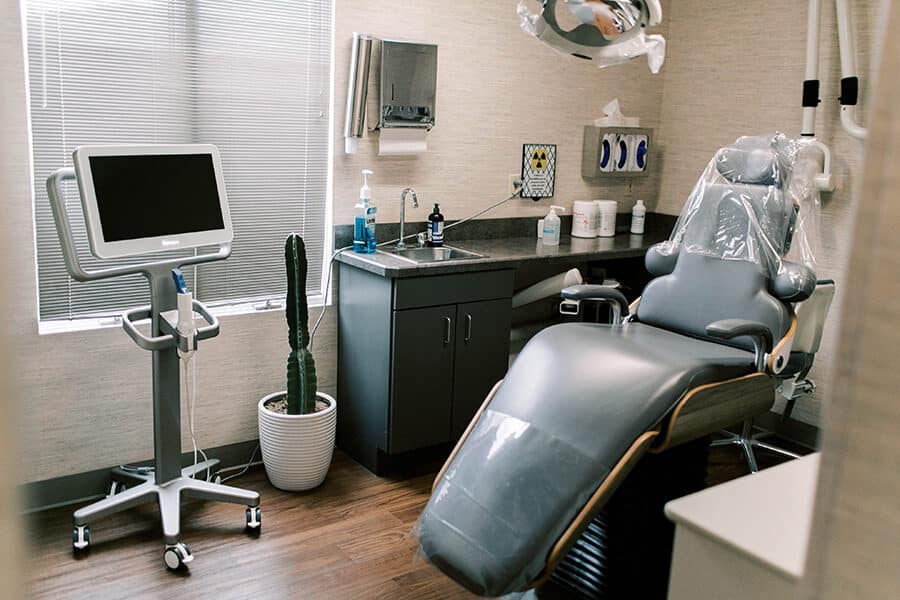There may be instances where your dentist recommends that you have a tooth extraction. While this may seem scary at first, this is an incredibly common procedure performed by dentists and oral surgeons across the country every day. Depending on the state of your tooth, it can also be incredibly quick! In some cases, applying local anesthesia takes longer than the actual extraction. During your visit, you’ll be made as comfortable as possible during the entire experience.
Reasons for the extraction
By far the most common extraction procedure is done to remove your wisdom teeth. In this situation, your wisdom teeth are growing in a way that is impacting the other teeth, which can often cause pain and discomfort. Therefore it’s often necessary to remove them entirely to prevent future problems.
There are several other reasons your dentist might decide you need to have a tooth extracted. Some potential issues that can arise include:
- If a root canal did not go as expected, the tooth may be extracted in order to prevent infection
- Advanced periodontal disease, or disease of the gum, may make it necessary to extract your tooth
- It’s possible to have extra teeth which cause your mouth to become crowded
- You may have a heightened risk of infection caused by chemotherapy or during an organ transplant
All of these concerns will be discussed with you when you consult with your dentist prior to the procedure. Your dentist will have taken X-rays and will review them to assess the state of your teeth and gums. This information will help them to recognize that an extraction might be necessary. A lot of issues can be caught quickly at your 6-month appointments with your dentist. This is one of the reasons sticking to these appointments is so important. The sooner your dentist can catch an issue the better chance they might be able to prevent you from needing an extraction in the first place.
The extraction process
What this part will look like will depend on the issue being addressed and whether your extraction is simple or surgical. In the case of wisdom teeth, if the wisdom teeth to be extracted have erupted past the surface of the gums, the process is more straightforward. You’ll be administered local anesthesia to numb your tooth. The oral surgeon will then wiggle the tooth loose and then pull it out. If your wisdom teeth haven’t breached the surface of your gums, your oral surgeon will make a small incision in the gums in order to gain access to the tooth. It’s possible the tooth may then be sectioned and removed in pieces rather than as a whole.
Whether the extraction process is simple or surgical, anesthesia will be used to make the process as comfortable as possible. As mentioned, local anesthesia will be used to numb the area around the extracted tooth. However, sedation might be used to give an added layer of comfort if you have trouble during the process. This can be as simple as nitrous or oral sedatives are given before the procedure or even general anesthesia where you sleep through the procedure.
Post-operative care
Depending on how involved your procedure was, it may take 1 to 2 weeks for your mouth to fully heal. How long this time frame is depends not only on the complexity of the procedure, but also on how closely any post-operative care instructions are followed. Your oral surgeon will not only explain a lot of the post-op care instructions with you at your visit but should also send you home with the information. These instructions will vary depending on the procedure and also if you have any other oral health issues that might complicate it.
If you feel as though you may need an extraction, feel free to reach out to us. We’re here to consult with you and to help you get on a path to achieving excellent oral health.



